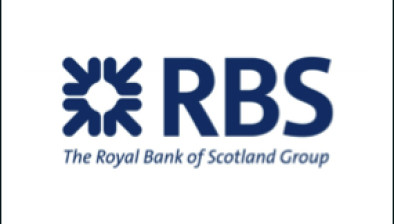RBS: Job losses across Scotland ease in December

The number of permanent staff appointments across Scotland continued to decline in December, according to the latest Royal Bank of Scotland Report on Jobs, although the downturn eased noticeably on the month.
Meanwhile, temp billings rose markedly again, amid the quickest increase in demand for short-term staff since late-2019.
Upwards pressure on starting pay also became apparent in December, with permanent salaries rising for the first time since March, while the rate of temp wage inflation was the quickest seen for over a year. Amid reports of redundancies, linked in turn to ongoing lockdown measures, candidate availability continued to rise at a substantial pace.
December data highlighted another reduction in the number of permanent staff appointments across Scotland, extending the current run of decline to 11 months. Panellists attributed the latest fall to COVID-19 and ongoing lockdown measures. The rate of decline eased noticeably from November, but was solid overall.
Trends between Scotland and the UK diverged in December, with permanent placements rising for the first time since September at the national level.
Recruiters in Scotland signalled a rise in temp billings for the fourth straight month during December, with the rate of increase little-changed from that seen in November and marked. According to respondents, companies had taken on additional staff due to slightly improved demand.
Temp billings also rose at the UK level in December, although the rate of increase was slower than in Scotland.
A seventh consecutive monthly rise in the supply of permanent candidates across Scotland was recorded in December. Panellists attributed the latest uptick, which was sharp, to COVID-19 related redundancies. The rate of increase was the slowest in the aforementioned sequence, however.
Permanent candidate availability also rose at the UK level in December, with the upturn slightly faster than in Scotland.
Recruiters in Scotland registered a further increase in the availability of temporary candidates during December. The respective seasonally adjusted index rose from November’s seven-month low and signalled a marked rise in temp staff supply overall. That said, the expansion was slightly softer than the UK-wide trend.
Salaries awarded to permanent new joiners in Scotland rose for the first time in nine months during December. The rate of increase was only marginal, but nonetheless outstripped that seen at the UK level.
December data highlighted a renewed increase in average hourly pay rates for short-term staff in Scotland. Moreover, the rate of wage inflation was the quickest since September 2019 and elevated in the context of the series history.
Temp wages also rose at the UK level during December, although the upturn was much softer than in Scotland.
December data highlighted a tenth successive monthly fall in the number of permanent vacancies across Scotland. The rate of reduction was the slowest since March, but still sharp overall.
Recruiters across Scotland signalled a further rise in temporary vacancies during December. Moreover, the rate of increase was the joint-quickest for over a year (alongside December 2019) and sharp.
Sebastian Burnside, chief economist at RBS, said: “Ongoing restrictions and lockdown measures continued to stifle hiring activity in Scotland in December as permanent staff appointments and vacancies declined further. That said the rates of reduction were not as severe as those seen in November.
“There was further evidence that firms were turning to short-term staff to fill vacancies, as temp billings rose markedly again amid the sharpest increase in temp staff demand for a year, reflecting ongoing uncertainty regarding the short-term outlook.
“With the recent announcement of a national lockdown in Scotland, job seekers are likely to have a much more challenging time in the months ahead. Permanent appointments and temp billings declined at record rates amid the lockdown in spring last year, and similar measures may bring a further unprecedented drop in hiring activity while case numbers are brought under control and the vaccine rolled out.”










